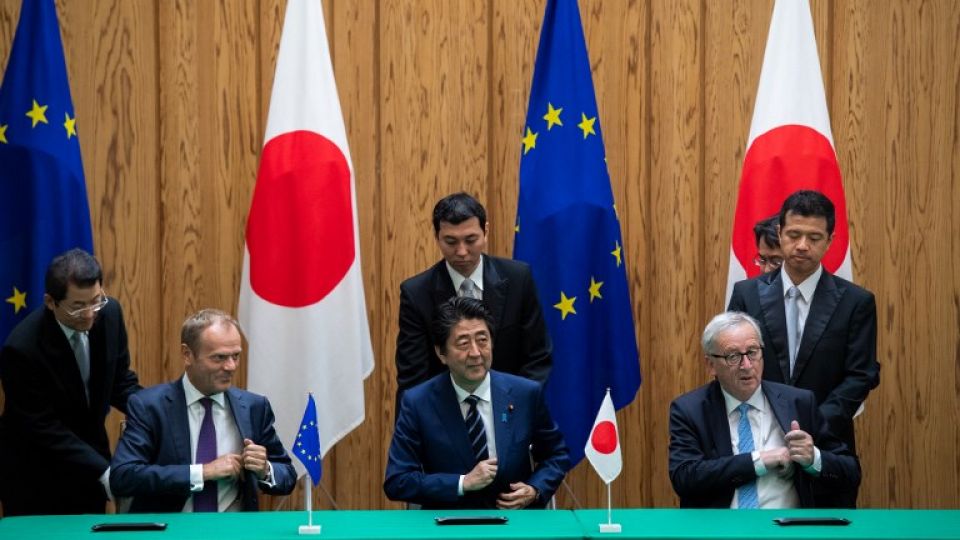February 5, 2019
The EU-Japan free trade deal is now in effect signaling a new era in trade relations between the two.
Japan and the European Union should build a firmer cooperative relationship and contribute to boosting free trade.
The Japan-EU Economic Partnership Agreement, which has taken effect, calls for abolishing or reducing tariffs on more than 90 percent of trade items, facilitating investment and protecting intellectual property rights.
The combined gross domestic product of Japan and the EU accounts for about 30 percent of the world total. It is highly significant that fair, sophisticated rules have been laid out and a huge free-trade zone established. This bilateral EPA is expected to invigorate trade in goods and the flow of funds, thereby helping enhance the growth potential of both sides.
With the enforcement of the Japan-EU EPA, Japanese consumers will be able to buy European products, including wine and cheese, at lower prices.
Domestic firms and producers, for their part, can expect the benefit of higher exports to the EU of such trade items as passenger cars, beef and green tea. They need to exercise their ingenuity to come up with effective sales strategies and investment plans, viewing the enforcement of the bilateral EPA as an opportunity for trade expansion.
Needless to say, there is also the possibility that domestic products will be forced to compete with their European counterparts whose prices will be lowered. The government has already taken measures to provide management assistance for agricultural and dairy farmers, among others.
These steps are aimed at alleviating the adverse effects of the Japan-EU EPA as well as the Trans-Pacific Partnership that took effect late last year. It is natural for the government to show a certain degree of policy consideration for producers.
U.S. stance intolerable
Japan partially opened its rice market under the 1993 Uruguay Round agreement on agriculture. At that time, the government allocated a whopping ¥6 trillion to implement assistance measures but this did not lead to the revamping of domestic agriculture. The same policy mistake should not be made this time.
It is essential for the government to devise effective measures for boosting the competitiveness of domestic agriculture and to prioritize budget allocations for that purpose.
Improving product quality and brand strength, and enhancing productivity with the use of information technologies — these proactive moves should be promoted steadily.
U.S. President Donald Trump has imposed punitive tariffs on imports from Japan and EU countries, which are allies of the United States, thus launching an unproductive trade war. The U.S. stance of disregarding free trade should never be tolerated.
Japan is called on to apply pressure over U.S. protectionist policy while enjoying the benefits of free trade available from its EPAs with other countries and the TPP.
Tokyo will soon enter into negotiations with Washington toward the conclusion of a trade agreement on goods (TAG).
If tariffs on many trade items are lifted or reduced based on the EPAs and the TPP, it will be disadvantageous for U.S. exports to Japan. Washington may prioritize the early conclusion of an agreement, making it possible for Tokyo to proceed with TAG negotiations to its advantage.
At the same time, the possibility cannot be ruled out that Washington will press for a market opening whose scale is greater than that under the EPAs and TPP.
The EU is holding consultative trade talks with the United States, too. Japan is called on to maintain close cooperation with the EU also in connection with its TAG negotiations with Washington, and to devise an effective diplomatic strategy.


